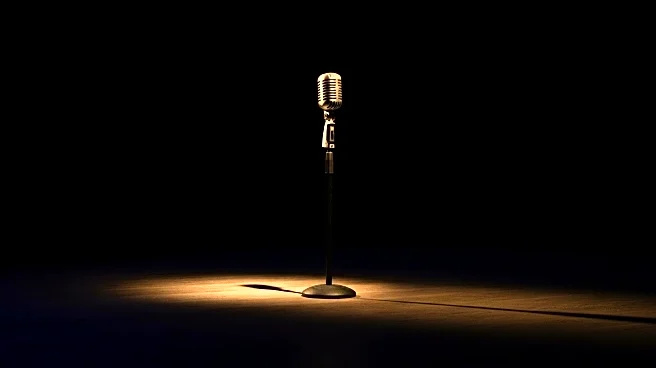What's Happening?
Steve Harvey, known for hosting 'Family Feud,' has explained his decision to leave stand-up comedy, citing the pervasive influence of cancel culture. Harvey, who quit stand-up over a decade ago, discussed the difficulty of performing comedy in today's environment during an appearance on 'The Pivot Podcast.' He noted that the constraints of cancel culture have made it challenging to deliver jokes without facing backlash. Harvey emphasized that he foresaw the changes in the comedy landscape and chose to step away from stand-up to focus on other ventures, including his television and radio shows. He performed his final stand-up show in Las Vegas in 2012, marking the end of a 27-year career in comedy.
Why It's Important?
The impact of cancel culture on the entertainment industry, particularly comedy, is significant. Comedians like Steve Harvey are finding it increasingly difficult to navigate the boundaries of acceptable humor, which can stifle creativity and limit the scope of comedic expression. Harvey's departure from stand-up highlights the broader challenges faced by performers who must balance artistic freedom with societal expectations. This shift may influence the future of comedy, as more comedians might alter their content or leave the stage altogether. The situation underscores the ongoing debate about free speech and the role of comedy in challenging societal norms.
What's Next?
As cancel culture continues to shape the entertainment landscape, comedians and performers may need to adapt their approaches to remain relevant and avoid controversy. This could lead to a transformation in comedic styles, with a focus on more universally acceptable humor. Industry stakeholders, including networks and production companies, might also reconsider their support for certain types of content, potentially affecting programming decisions. The evolution of comedy in response to cancel culture will likely be a topic of discussion among entertainers and audiences alike.








